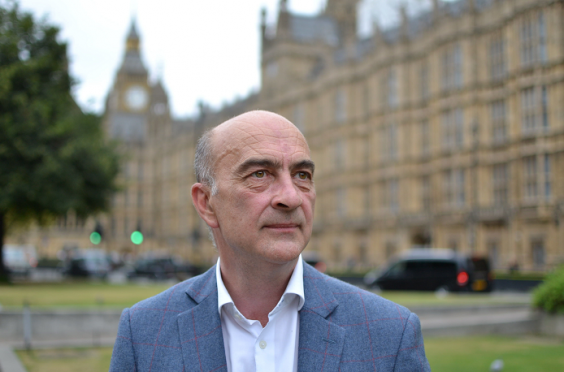I don’t like being told what to do. Or what to think. I like to make my own mind up about stuff. I’m obstinate like that.
I’m prepared to give people I’ve not met the benefit of the doubt until I can judge them for myself. I won’t just go with the flow on an issue because others tell me to. I’m my own man and I will swim against the tide if my own experiences tell me that is the right way to go. I’d rather trust my own eyes than put my faith in another’s vision.
Despite being in the business of politics for so long, I had hoped that most people were the same. I prefer the art of persuasion to the bludgeon of propaganda. Empirical evidence should trump crass assertion.
In a world dominated by “fake news” where disinformation is the new information, what can we believe?
I woke up on Saturday to the news of a poll claiming that over a third of people in Scotland believe that the BBC is biased against the cause for Scottish independence.
Nearly a quarter disagreed.
In other words, nearly three in every five people claimed to have an opinion on the question of BBC bias.
There are around 4.5 million potential viewers and listeners in Scotland aged 16 or over.
One and a half million of them, if this poll is accurate, think the BBC is somehow doing down the cause of Scottish separation. Over two and a half million have a firm opinion either way.
The basis for such a view would, I assume, be based on their own objective take on news and current affairs programmes to which they listen and watch.
But here’s the rub. Where are these 2,500,000 people? Are there really that many who are regular news and current affairs fans?
BBC Reporting Scotland, Auntie’s flagship news show, has average viewers of between 500,000 and 600,000.
BBC Radio Scotland reaches one in five Scots at some time in the week, but not all of them will be listening to its news and current affairs programmes. Many will be there for the football on a Saturday afternoon.
What about those who watch the UK-wide 6pm and 10pm news? It is a similar number to those watching Reporting Scotland and most of them are the same people. And some of them will be the same Radio Scotland listeners above.
In other words, surely the question is not whether the BBC can be trusted, but can the results?
Or, more bluntly, can we trust the answers which the respondents gave?
To decide whether or not the BBC is biased surely needs an objective answer. That can only be based on regular watching or listening. Balance in news and current affairs is achieved over the piece, not in each and every individual report or bulletin.
Put bluntly, there seems to be vastly more people with an opinion than there are in a position to form their own reasoned opinion. Which suggests that something else is going on.
And why wasn’t a question asked about whether there was pro-Indy BBC bias? Only asking if people thought there was anti-Indy bias is, in itself, a biased proposition. It reinforces the image of the BBC being only capable of one way favouritism.
So this is not me taking sides on the actual question. Rather this is me wondering out loud how so many people could truthfully answer the question in the first place. Well a dig into the data indicates the answer.
Because surprise, surprise people’s responses, informed or otherwise, predominately follow their Indy vote in 2014.
Two thirds of Yes backers think the BBC is out to do them in. Only 7% of no voters agreed. By nearly 7:1 Indy supporters bought the bias line compared with Union backers.
All of which paints a disturbing picture. One of manipulation. Not by the BBC, but by politicians and their acolytes. People have been told “BBC Bad”. Its the British Biased Corporation. Marches have been held. A narrative has been written. Social media bombarded. If you lost the referendum, you cling to that belief. If you were on the winning side, you dismiss it as sour grapes.
Day by day, week by week, month by month since 2014, a picture has been painted. And in an increasingly polarised world, people believe what they want to believe. They need excuses. Or somebody to blame. A classic case of “If your not for me, you must be against me.”
Let me repeat, I am not judging the truth or otherwise the pollster’s proposition. I am bemoaning our ability to form an opinion based on the evidence of our own eyes and ears and instead just swallowing a line just because it has been repeated so often.
I am bemoaning how much we are retreating into our own wee echo chambers and information silos, shutting out all contrary voices and depressingly prepared to believe what we are told to believe because it fits our prejudices.
So is the BBC anti-Indy?
Don’t ask me.
Go and decide. For yourself.
